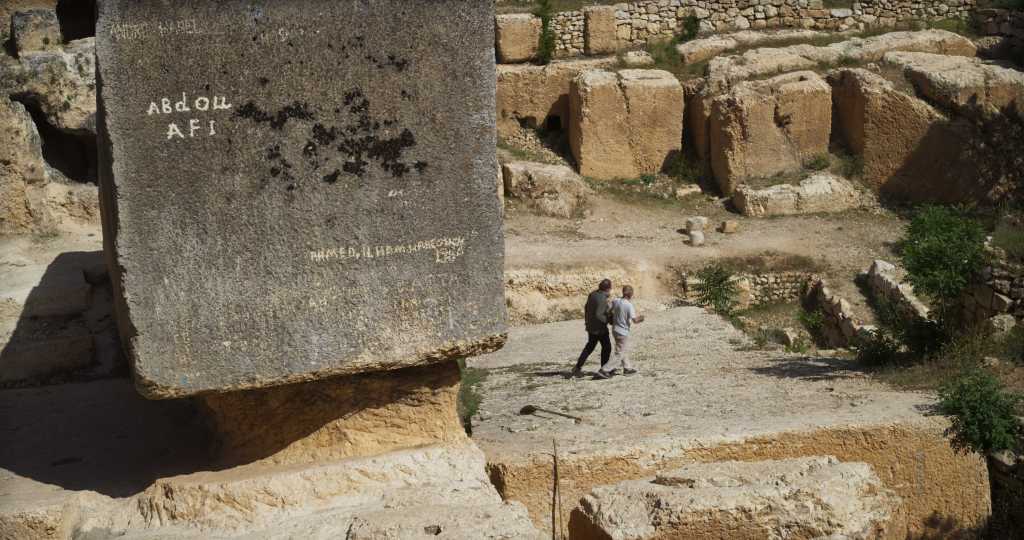It’s very straightforward to misinterpret the title of Victor Kossakovsky’s newest documentary as “Architection,” since it’s, in some methods, a detective story in regards to the world we reside in, albeit one through which it is vitally straightforward to determine whodunit (spoiler: we did it to ourselves). The precise title, Architecton, is a Greek phrase which means “grasp builder,” and the movie performs with the irony of what that will imply — pitting the “grasp builders” of yesteryear towards the “grasp builders“ of immediately — from the very starting, utilizing a cryptic line from “L’aquilone,” a rumination on bygone instances by Italian poet Giovanni Pascoli (1855-1912). “There’s something new inside the solar immediately, or quite historical,” he writes. This fascinating, engrossing movie interrogates the subtext of this seemingly paradoxical assertion.
In a haunting prolog, we see the ruins of a housing property in what’s presumably war-torn Ukraine (Kossakovsky doesn’t at all times inform you the place his cameras are pointing). A drone soars above the carnage, revealing the extent of the injury to buildings the place individuals as soon as lived. The proof of their having been there now appears virtually pathetic; these areas appear barely sufficient for existence, not to mention survival. It’s the ugly, ignominious finish of an unpleasant, ignominious constructing, however Kossakovsky’s seemingly cryptic tone-poem movie is simply dangling that concept in entrance of us as an aperitif.
The movie itself begins with a really unusual ritual; an unnamed architect (later revealed to be Michele De Lucchi, one other Italian) is constructing a stone circle in his backyard. There is no such thing as a objective to this object apart from to be a human-free zone: as soon as accomplished, solely De Lucchi’s canine is to be allowed inside it.
Whereas all this is happening, Kossakovsky’s roving eye takes us all over the world, in a travelogue that reveals us the resilience of the previous world versus the transience of the trendy. It reveals the poetics of damage, however it’s a cycle with diminishing returns; the particles of the Romans and Greeks nonetheless has a grandeur and majesty that’s lacking from the shabby detritus of the trendy world, as we see within the aftermath of the earthquake that laid waste to Turkey in the summertime of final 12 months.
For a time, the closest comparability is Godfrey Reggio’s 1982 masterpiece Koyaanisqatsi (the title being a native-American Hopi phrase that means “Life out of stability”), and Kossakovsky makes use of music to related, hypnotic impact. He additionally goes past structure to take us into the key world of rocks and stones, and his beautiful close-up pictures of landslides are among the greatest motion scenes of the 12 months to this point. Progressively, this reveals a story objective; alongside scenes of ruins historical and trendy, Kossakovsky takes us into the manufacturing of concrete, a course of that takes lovely stones of all colours, sizes and shapes, then transforms them into an unlovable grey and depressing sludge.
It’s all very gnomic, however Kossakovsky can’t assist however blurt his ideas out within the epilogue, with a thesis that’s actually quite simple: “Why will we construct ugly, boring buildings after we know make lovely ones?”
De Lucchi, a splendidly lugubrious presence, is aware of this very effectively, and speaks fairly candidly about his personal complicity on this more and more prevalent anti-aesthetic, saying that, as a worldwide entity, we want to consider “what we construct that nourishes the planet and what we construct that may destroy it… Structure is a method to consider how we reside, how we behave.”
Such an idea isn’t all that new — it’s over 100 years since Le Corbusier declared that “a home is machine for dwelling in” — however Kossakovsky’s fascinating, magnetic movie essay does assist us to reassess what we’ve misplaced over the centuries. And, better of all, it isn’t miserable; like Reggio’s movie, it’s a warning sounded within the good religion of being heard within the nick of time.
Architecton verbalizes one thing we’re all pondering within the trendy age of struggle and local weather change: what’s going to we depart behind, and what’s going to it say about us to future generations? We are able to solely pray that they’ll consider us kindly.
Title: ArchitectonFestival: Berlin (Competitors)Distributor: A24Sales agent: The Match FactoryDirector: Victor KossakovskyRunning time: 1 hr 38 min
